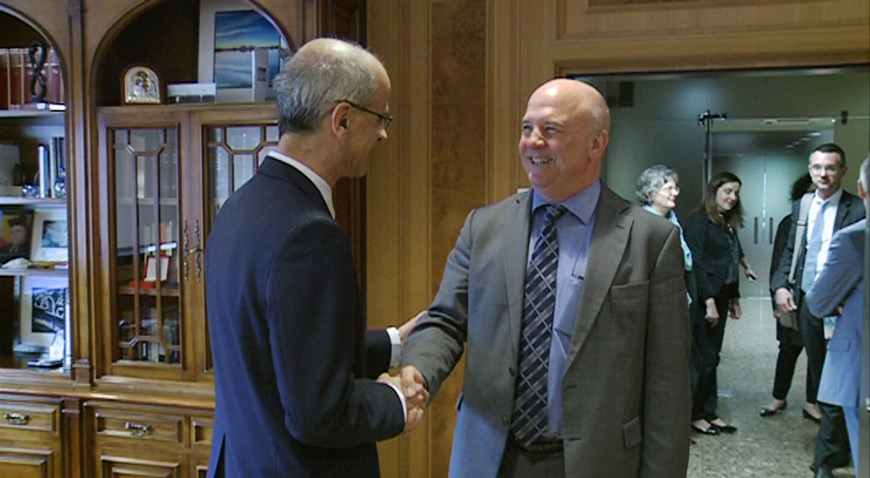“Andorra has a very advanced system of inclusive education, whereby all children, including those with disabilities and from migrant families, learn together with other children and are supported as necessary. However, further efforts are required to enhance the overall protection of children’s rights”, said Nils Muižnieks, the Council of Europe Commissioner for Human Rights, at the end of a two-days visit to Andorra from 10 to 11 May 2016.
The Commissioner encouraged the Andorran authorities to design and implement a national strategy for the protection of children’s rights in close co-operation with all the relevant stakeholders, including from among civil society. Based on reliable and updated information on the situation of children in different areas, the strategy should improve both coordination of services provided and awareness of children’s rights in society at large. He stressed that the strategy could build on recent achievements: “for example, Andorra acceded to the Lanzarote Convention on the protection of children against sexual abuse and sexual exploitation and to the UN Convention on the Rights of Persons with Disabilities, which enshrines important rights for children with disabilities. It also adopted a law prohibiting corporal punishment against children in all settings and provides children with direct access to remedies such as the Ombudsman’s Office (Raonador del Ciutadà)”.
With regard to women’s rights, the Commissioner called upon the authorities to swiftly adopt a comprehensive anti-discrimination law, providing effective protection against discrimination based on a wide range of grounds, including gender. An independent body with adequate powers should also assist with the implementation of this legislation, including by monitoring discrimination and facilitating access to effective remedies by victims. Moreover, the Commissioner called on the authorities to engage with the private sector, in particular the banking sector, to find ways of remedying reported inequalities and discrimination facing many women employed in this sector.
The Commissioner also discussed measures to protect women victims of domestic violence, a persisting problem in Andorra as in the rest of Europe. He welcomed the accession by Andorra to the Council of Europe Convention on preventing and combating violence against women and domestic violence and the adoption, in 2015, of a comprehensive law on violence against women. “The challenge is now to bring these commitments to life” stressed the Commissioner. Some measures are already in place, such as trained professionals providing support to victims and shelters for women victims of violence, one of which the Commissioner visited. “However, there is a need for more measures and better coordination, two issues which will hopefully be addressed by the newly created inter-ministerial commission on violence against women”. Commissioner Muižnieks noted that Andorra has one of the most restrictive legal frameworks on abortion in Europe. While he is aware of the difficulties in changing this situation linked to the institutional set-up of the country and the interpretation of its Constitution, the Commissioner hopes that future debates about abortion will lead to its decriminalisation, at least in the case of risks for the health of the mother, fatal foetal abnormality and rape or incest.
Lastly, the Commissioner praised the existence of a well-established, independent Ombudsman institution in Andorra. This institution should be able to fulfill the function of a national preventive mechanism against torture, once Andorra ratifies the Optional Protocol to the United Nations Convention against Torture (OPCAT). He also pointed to the need to continue progress towards strengthening the institutional framework for the protection of human rights. As discussions on a law on equality and against discrimination continue, this includes the setting up a new independent institution or the widening the mandate of the Ombudsman’s Office to cover these issues.



